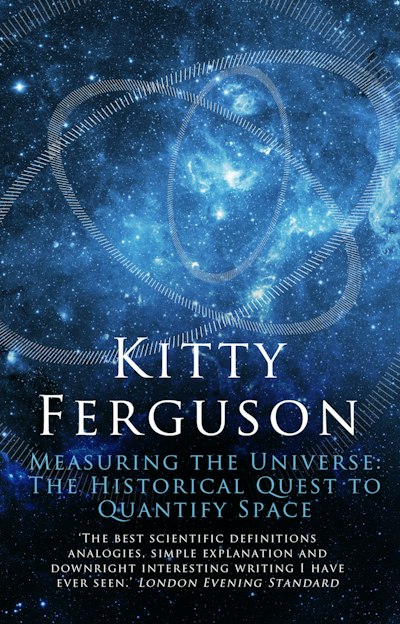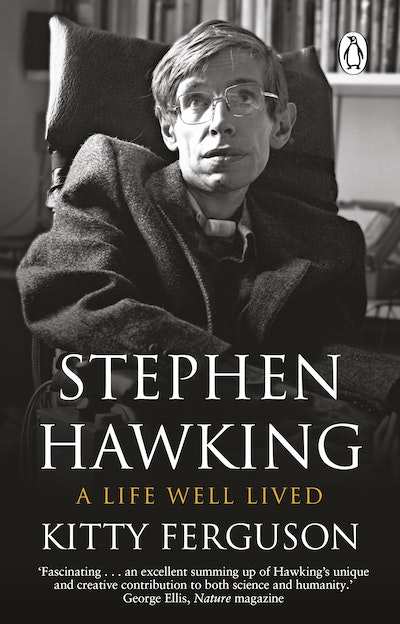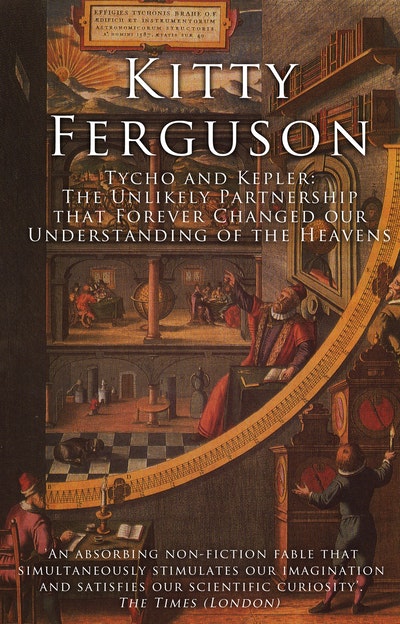Measuring the Universe
The Historical Quest to Quantify Space
- Published: 31 January 2013
- ISBN: 9781448167227
- Imprint: Transworld Digital
- Format: EBook
- Pages: 320
It is one of the great stories of science, and Ferguson tells it well.
Sunday Telegraph, London
Ferguson offers lucid accounts of the reasoning behind important leaps of insight, but it’s the little details that delight.
Discover
Ferguson manages to walk us through the most amazing research. She is as interested in the quirky intellectual temperaments of astronomy’s pioneers as in their discoveries.
Forbes
Modern bookshelves are filled with stories of cosmic discovery. Occasionally, however, an author comes along who dares to describe how science works, who dares to find its underbelly and remind us that the romance and pleasure of cosmic discoveries lies not necessarily in experimental results but in the journey of measurements that led to them. Such an author is Kitty Ferguson, a musician turned science writer, who is distinguished as one who can explain complex things – from the life and times of cosmic objects like black holes to the life and times of cosmic physicists such as Stephen Hawking.
Neil DeGrasse Tyson, Director of the Hayden Planetarium at the American Museum of Natural History in New York City
Music, more than any of the other arts, is expressed in numbers – measurements of differences in pitch and time. I’m no scientist, but I know what I like, and I found Measuring the Universe exciting, entertaining, and even enthralling.
Peter Schickele
Ferguson turns men of science into men of fascination.
Evening Standard
Ferguson brings a lively, infectiously enthusiastic tone and historical perspective to measuring the universe. A very readable and enjoyable book.
Wendy Freedman, Carnegie Obsevatories



